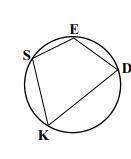A lock has a code of 3 numbers between 1 and 20. If no numbers in the code are
allowed to repe...

Mathematics, 02.04.2020 04:43 amandasantiago2001
A lock has a code of 3 numbers between 1 and 20. If no numbers in the code are
allowed to repeat, how many different codes could be made?

Answers: 1


Other questions on the subject: Mathematics

Mathematics, 21.06.2019 17:30, kleshead
Colby and jaquan are growing bacteria in an experiment in a laboratory. colby starts with 50 bacteria in his culture and the number of bacteria doubles every 2 hours. jaquan starts with 80 of a different type of bacteria that doubles every 3 hours. let x equal number of days. colbys experiment follows the model: a.) y=50*2^x b.) y=50*2^8x c.) y=50*2^12x jaquans experiment follows the model: a.)80*2^x b.)80*2^8x c.)80*2^12x
Answers: 3

Mathematics, 21.06.2019 19:20, laidbackkiddo412
Find the area of an equilateral triangle with a side of 6 inches
Answers: 2


Mathematics, 21.06.2019 19:30, jossfajardo50
Aproduction manager test 10 toothbrushes and finds that their mean lifetime is 450 hours. she then design sales package of this type of toothbrush. it states that the customers can expect the toothbrush to last approximately 460 hours. this is an example of what phase of inferential statistics
Answers: 1
You know the right answer?
Questions in other subjects:


English, 11.12.2020 01:50


History, 11.12.2020 01:50


Spanish, 11.12.2020 01:50


History, 11.12.2020 01:50






